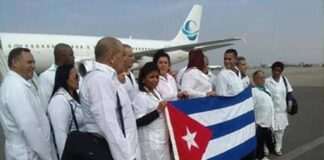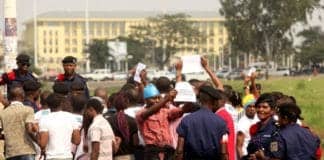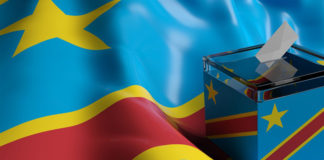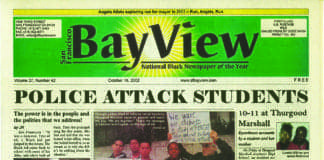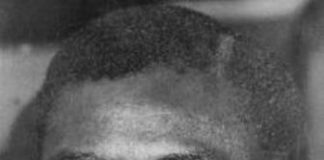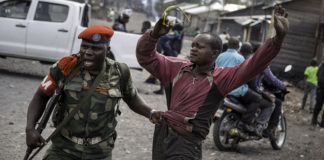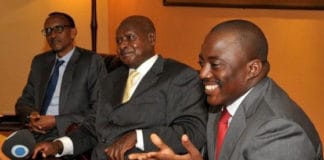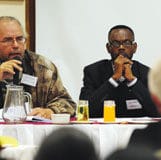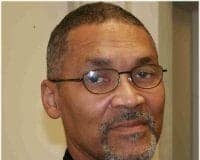Tags Friends of the Congo
Tag: Friends of the Congo
Get out Cuba’s way
Nearly six weeks since shelter-in-place and quarantine orders in the United States and worldwide because of the COVID-19 outbreak, countries all over the world have been pummeled with more than 3.3 million confirmed cases and 235,000 deaths worldwide.
Hijacking the Congolese people’s victory
The Congolese people were determined to rid themselves of Joseph Kabila’s regime on Dec. 30, 2018, the date of the presidential, legislative and provincial elections in the Democratic Republic of Congo (DRC). For two years, the people had made tremendous sacrifices in life and freedom in a deadly battle against President Kabila, who was bent on remaining in power by any means necessary.
DR Congo post-election: An interview with Maurice Carney
On New Year’s Eve, the people of the Democratic Republic of the Congo (DRC) went to the polls to choose their next president, parliament and provincial governments. I spoke to Maurice Carney, executive director of Washington, D.C.-based Friends of the Congo, about the results.
Bay View turns 40! Part 2
Now, as the San Francisco Bay View newspaper’s 40th birthday year comes to a close, is the time to bring up to date the historical sketch of our paper that I began with Part 1 in the January paper. Piles of old papers rest on my desk, waiting to be read once again – a banquet of stories and pictures of our lives, our hopes, our goals. Let me let you taste the flavor of the freedom we continue to fight for in the age of Trump.
Fifty-five years after Lumumba’s assassination, Congolese see no relief
One of the most devastating U.S. interventions was the overthrow of the democratically elected leader of the Congo, Prime Minister Patrice Emery Lumumba, in 1960. That overthrow has been devastating for the Congolese people, because not only did the U.S. overthrow and assassinate the democratically elected leader, but they also imposed a dictatorship on the Congolese people for over three decades, and it has crushed and destroyed the country and the people.
Congolese youth look to chart a new path in the heart...
The path forward for many Congolese youth is clear. They want to be free from tyranny more than the Kabila regime wants to repress them and deprive them of their God-given life pursuits. In the Congo, the youth are prepared for a sustained civil disobedience undertaking to cripple and ultimately remove an oppressive system that not only kills them but also squelches their aspirations and hopes for a dignified life.
Congo’s problems are Museveni, Kagame and Kabila, not the FDLR
Potentially catastrophic military operations, authorized by the U.N. Security Council, may lie ahead soon for the Democratic Republic of the Congo. The U.N. Security Council has urged the Congolese army to join U.N. combat troops from South Africa, Tanzania and Malawi in hunting down the Democratic Forces for the Liberation of Rwanda, a Rwandan refugee militia commonly known as the FDLR.
Stop killing Congolese people
The First Congo War began in 1996, the second in 1998. The second war drew in all nine countries bordering the DRC, left millions dead, displaced millions more, and ignited conflicts that continue in the country’s mineral rich east, despite the peace treaty signed in 2003. Competition for Congolese resources can’t be stopped, but the massacre of Congolese people can and must, says Dr. Jean Didier Losango.
Rwanda Day: Black faces of empire
The City of Atlanta hosted the fourth international Rwanda Day on September 20, 2014. Rwanda Day celebrations were held in Chicago in 2011, Boston and London in 2012, and Toronto in 2013. Rwandan and Congolese exiles and refugees have appeared to protest each time, as they did again in Atlanta. Bruce Dixon, Atlanta resident and managing editor of the Black Agenda Report, attended the protest.
Open letter to American universities that invited Kagame to speak
As a coalition of Africa-focused human rights and peace organizations representing a broad range of individuals, we write to express our dismay at your decision to welcome President of Rwanda Paul Kagame to your universities. We regret to inform you that your invitation of Paul Kagame to your institution co-signs his repressive practices inside Rwanda and his aggressive interventions in neighboring Democratic Republic of the Congo.
Victoire Ingabire: the woman who challenged Rwanda’s Paul Kagame
While Rwandan President Paul Kagame was in South Africa to pay his last respects to Nelson Mandela, the Rwandan Supreme Court upheld the conviction of imprisoned opposition leader Victoire Ingabire and extended her sentence from eight to 15 years. As she left the courtroom, Ingabire gave her usual thumbs up salute and urged her supporters not to be afraid, because, she said, time and history are on their side.
Alima Olga Kasongo, the Boondocks and the Congo
Twenty-six year-old Congolese American science student Alima Kasongo should inspire anyone facing enormous odds, most of all her own Congolese people, who have faced the most enormous odds thrown at any people in the world for so many years. For good reason, many have said that if there were peace in the Democratic Republic of the Congo (DRC), there would be peace on earth.
Democratic Republic of Congo: A prescription for lasting peace and stability
The 17-year quest for peace in the Democratic Republic of Congo has taken a significant step in the right direction; however, many concerns remain. Last week the Congolese military routed the Rwanda- and Uganda-backed M23 and declared an end to its reign of terror against the Congolese people.
Mayor Chokwe Lumumba and the Congolese people
“We are not alone. Africa, Asia, and free and liberated people from every corner of the world will always be found at the side of the Congolese.” So Chokwe Lumumba, having that name, should carry the spirit. He should know, as he becomes the new mayor of Jackson, Missisippi, that he will never be alone, that there will always be people around him to make sure that he succeeds in what he is doing.
Congolese to UN: Let our army advance against Rwanda’s M23
On Wednesday, July 17, Nick Long reported for the Voice of America that the Congolese army’s recent successes at driving the M23 militia from their positions in eastern Congo have caused euphoria amongst Congolese, particularly in Goma, the capital city of North Kivu Province on Congo’s border with Rwanda. Here’s that Voice of America radio report:
Rwanda’s M23 prepares to fight the UN Brigade, as Obama urges...
Speaking in Tanzania at the end of his African tour, President Obama urged “countries neighboring the Democratic Republic of the Congo” to make peace. Congo shares borders with nine African nations, but the president declined to say which of them he was referring to. Obama spoke about the U.N. brigade at a press conference, but declined to name Rwanda and Uganda as the aggressors in eastern Congo.
In Tanzania, did Obama call out ‘Congo’s neighbors’ strongly enough to...
In Tanzania, President Obama said, “The countries surrounding the Congo, they’ve got to make a commitment to stop funding armed groups that are encroaching on the territorial integrity and sovereignty of Congo.” As the U.S. calls on its allies to cease funding armed groups in the Congo, the U.S. should cease funding of Rwanda and Uganda.
Congo: The UN Combat Intervention Brigade is not there to combat...
Friends of the Congo’s Executive Director Maurice Carney told KPFA that the U.N. Combat Intervention Brigade is really just the U.S., U.K., and other Western powers’ excuse for continuing to support African dictators – Rwanda’s Paul Kagame, Uganda’s Yoweri Museveni and Congo’s Joseph Kabila. All three, he says, collaborate with foreign interests to drain Congo of its vast resource wealth.
Ban Ki-moon: What about the people of the Congo?
Late last week, the Security Council approved the creation of what it called its first-ever “offensive” combat force, with a mandate to carry out targeted operations to “neutralize and disarm” the notorious March 23 or M23 militia, as well as other Congolese rebels and foreign armed groups in the eastern Democratic Republic of Congo. Until now, U.N. peacekeeping forces’ only explicit mandate has been the protection of civilians.
Bosco Ntaganda surrenders in Rwanda, but will global powers hold the...
Congolese people are seeking peace and justice. Trying Bosco Ntaganda at the ICC may lead to some measure of justice for the crimes perpetrated at his behest; however, it appears that his backers in Rwanda may very well be let off the hook yet again and allowed to continue their military aggression against the DRC.

 Store
Store



